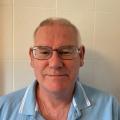
SOUTH Western Ambulance Service NHS Foundation Trust declared a critical incident over the bank holiday weekend.
The service urged people not to call 999 except for a life-threatening emergency after encountering “extreme pressures” on its services.
Wiltshire Air Ambulance was also extremely busy, with double the normal number of call outs from two to four or five.
WAA spokesman Adam Baker said: "Over the busy Bank Holiday weekend, May 29-31, we were tasked to 11 incidents and helped airlift/assist five patients to hospitals in Bath, Bristol, Salisbury and Southampton.
"We were called to emergencies in Bradford-on-Avon, Chippenham, Devizes, Marlborough, Salisbury, Swindon, Trowbridge, Tisbury, as well as Bath, Bristol, Gloucestershire and Somerset."
SWAST’s declaration on Saturday followed an upsurge in visitors to the South West for the bank holiday and school half-term break.
It was the first time that many families had been able to travel away for a holiday since Covid-19 pandemic lockdown restrictions were eased.
The South West Ambulance Service Trust tweeted that “some patients may wait longer for an ambulance” after it got 3,200 calls on Saturday, a 2021 record.
It advised patients to access alternative services if their call was not life-threatening and urged people to “make the right call.”
SWASFT said it also had a “busy day” on Sunday with more than 3,000 calls compared with 2,650 on a “normal” day.
Rich Marlow, of SWAST, said: “The South West has seen a very busy period over the past few days. We have reviewed our systems and have plans in place where we can increase our resourcing. We are focusing on getting to the most critical patients as quickly as possible.”
Mr Marlow said the service had seen an upsurge in incidents relating to DIY, gardening and outdoor activities.
He said paramedics were taking longer to get to incidents because of busy roads being congested with holiday traffic.
The service urged people to only call 999 in a genuine, life-threatening emergency so it could help those most in need.
SWASFT has dealt with almost 300 additional emergency incidents a day since the government eased lockdown restrictions to allow the reopening of outdoor hospitality and retail on April 12 and indoor hospitality on May 17.
Last week, it responded to an average of 2,913 incidents a day, compared with 2,816 incidents a day between April 12 and May 16, and 2,627 incidents a day before any of those changes took effect.
Lead Paramedic Ed Hill said: “To help us to help you and your loved ones, please ensure you make the right call. Think 111 before dialling 999 and save emergency ambulances for those who need us most. Also, if you decide to make your own way to hospital after calling 999, please remember to call us back to ensure your ambulance is available to someone else.”
People should call 999 for an ambulance in a medical emergency. This is when someone is seriously ill or injured and their life is at risk. For example: if someone has stopped breathing, is unconscious or has serious bleeding.
People with non-life threatening but urgent medical problems should contact NHS 111. For example, broken or fractured bones, sprains, or burns.
Inappropriate use of the 999 service puts unnecessary additional pressure on limited ambulance resources and can delay emergency care to those most in need.
Are you concerned about the eviction ban ending? Send us your comments or experiences
The ban on evictions for private rental tenants is coming to an end today (June 1). Concerns have been raised over a ‘tsunami’ of evictions and potential homelessness. Please tell us if you're affected locally.



Comments: Our rules
We want our comments to be a lively and valuable part of our community - a place where readers can debate and engage with the most important local issues. The ability to comment on our stories is a privilege, not a right, however, and that privilege may be withdrawn if it is abused or misused.
Please report any comments that break our rules.
Read the rules here